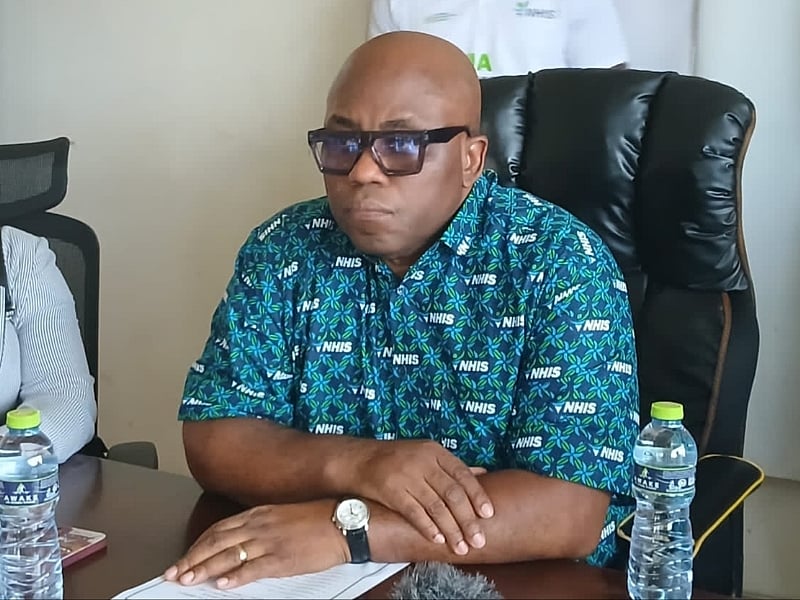The National Health Insurance Authority (NHIA) of Ghana has disbursed nearly one billion Ghana cedis to healthcare providers across the country this year, a significant investment aimed at propelling the nation towards Universal Health Coverage (UHC). Dr. Victor Asare Bampoe, the Acting Chief Executive Officer of the NHIA, emphasized the government’s commitment to strengthening the Authority’s capacity to contribute meaningfully to this overarching health goal. The disbursement reflects the government’s recognition of the NHIA’s crucial role in ensuring equitable access to quality healthcare services for all citizens. This financial commitment underscores the importance of timely claims reimbursement to sustain healthcare providers and ensure their continued participation in the national health insurance scheme. Ultimately, this investment is geared towards enhancing the health outcomes of the Ghanaian population and moving closer to the WHO’s vision of UHC.
The government’s commitment to UHC, as articulated by Dr. Bampoe, aligns with the World Health Organization’s global mandate for nations to strive for universal access to quality healthcare services, irrespective of financial constraints. The NHIA’s prompt payment of claims is a critical component of this strategy, ensuring that providers are adequately compensated for their services and incentivized to continue delivering quality care. This financial stability within the healthcare system is essential for achieving the UHC goal of providing comprehensive health services without imposing undue financial hardship on individuals seeking care. Dr. Bampoe’s assertion that the President’s focus is on the NHIA’s performance underscores the high priority placed on achieving UHC and its significance in improving the well-being of Ghanaians.
The “Mahama Care” initiative, introduced by the government to address gaps in communicable disease control and other health interventions, further demonstrates Ghana’s commitment to achieving UHC. This initiative specifically targets vulnerable populations and aims to ensure they have access to essential health services. Dr. Bampoe highlighted the vital role of teaching hospitals in the pursuit of UHC, acknowledging their position at the forefront of healthcare delivery and their contribution to realizing the President’s “Mahama Care” vision. He urged these institutions to intensify their efforts to improve national health outcomes, recognizing their critical role in providing specialized care and training future healthcare professionals. This emphasis on the role of teaching hospitals underscores the need for a robust and well-equipped healthcare infrastructure to support the UHC agenda.
The NHIA is actively working to strengthen the three pillars of UHC: geographical coverage, service coverage, and financial coverage. The Authority plays a particularly crucial role in financial coverage, ensuring that individuals are protected from financial hardship when accessing healthcare services. This focus on financial protection is essential for ensuring that healthcare is accessible to all, regardless of socioeconomic status. Dr. Bampoe acknowledged concerns about illegal payments within the healthcare system and expressed satisfaction that measures are being taken to address this issue. This commitment to transparency and accountability within the NHIA further strengthens the integrity of the national health insurance system.
Addressing the issue of stagnant promotions among healthcare workers, Dr. Bampoe revealed that a human resource audit is underway to identify and rectify these issues. This acknowledgement of the challenges faced by healthcare professionals and the commitment to improving their working conditions demonstrates a holistic approach to strengthening the healthcare system. By investing in the workforce, the NHIA is working towards creating a more motivated and productive healthcare sector, which in turn contributes to improved service delivery and patient outcomes. This focus on human resources underscores the understanding that a well-supported and fairly compensated workforce is crucial for achieving the ambitious goals of UHC.
Dr. Cardinal Newton, CEO of the Sunyani Teaching Hospital, provided insights into the hospital’s efforts to diversify its funding sources beyond reliance on NHIA claims. This proactive approach to financial sustainability is commendable and demonstrates the hospital’s commitment to providing quality care while exploring alternative funding streams. This diversification strategy is crucial for the long-term financial health of the institution and allows it to invest in infrastructure, equipment, and staff development. Dr. Newton also highlighted the hospital’s commitment to staff welfare, recognizing that a motivated workforce is essential for providing high-quality patient care. With a staff of approximately 3,000, the Sunyani Teaching Hospital plays a significant role in the region’s healthcare landscape, and its commitment to both financial stability and staff well-being reinforces its dedication to serving the community effectively.














